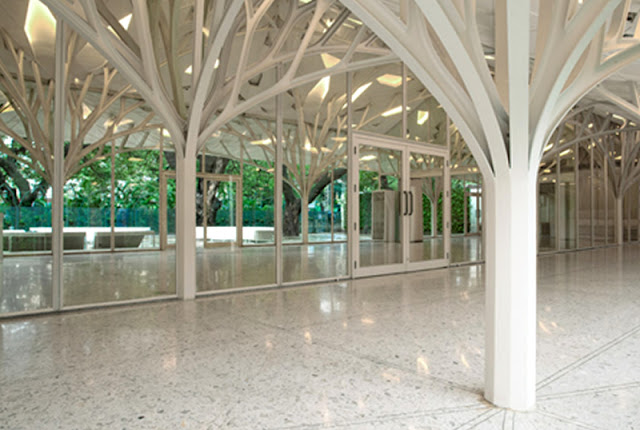 |
Natural Resources
Like our skins, a building is a layer of protection between our bodies and our environment. The building envelope is the point at which the inside comes into contact with the outside, the place where energy, materials, and living things pass in and out. The building’s interior design, along with the mechanical, electrical, plumbing, and other building systems, creates an interior environment that supports our needs and activities and responds to the weather and site conditions outdoors. In turn, the environment at the building site is part of the earth’s larger natural patterns.
 |
| interior design of college |
The Outdoor Environment
The sun acting on the earth’s atmosphere creates our climate and weather conditions. During the day, the sea. At night, much of this heat is released back into space. The warmth of the sun moves air and moisture across the earth’s surface to give us seasonal and daily weather patterns.
Solar energy is the source of almost all of our energy resources. Ultraviolet (UV) radiation from the sun triggers photosynthesis in green plants, which produces the oxygen we breathe, the plants we eat, and the fuels we use for heat and power. Ultraviolet wavelengths make up only about 1 percent of the sun’s rays that reach sea level, and are too short to be visible. About half of the energy in sunlight that reaches the earth arrives as visible wavelengths. The remainder is infrared (IR) wavelengths, which are longer than visible light, and which carry the sun’s heat.
Plants combine the sun’s energy with water and turn it into sugars, starches, and proteins through photosynthesis, giving us food to eat, which in turn builds and fuels our bodies. Humans and other animals breathe in oxygen and exhale carbon dioxide. Plants supply us with this oxygen by taking carbon dioxide from the air and giving back oxygen. Besides its roles in food supply and oxygen production, photosynthesis also produces wood for construction, fibers for fabrics and paper, and landscape plantings for shade and beauty.
Plants transfer the sun’s energy to us when we eat them, or when we eat plant-eating animals. That energy goes back to plants when animal waste decomposes and releases nitrogen, phosphorus, potassium, carbon, and other elements into the soil and water. Animals or microorganisms break down dead animals and plants into basic chemical compounds, which then reenter the cycle to nourish plant life.








Architects
ReplyDeleteEngineering Consultants
Interior Design
الاستشارات الهندسية المعمارية
التصميم الداخلي
تصاميم فلل #تصاميم مباني مختلفة الانشطة
http://araseel.ae